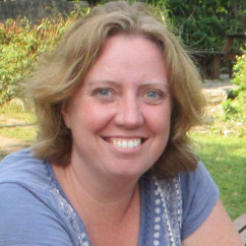Many trustees of small charities don't understand their legal responsibilities and just accept whatever the chief executive says, a charity leader told a Parliamentary group yesterday.
Tor Docherty (pictured), chief executive of LGBT charity, New Family Social, told the All Party Parliamentary Group on Charity and Volunteering that stricter consequences were needed for incompetent trustees.
“A lot of charity trustees are uncertain of what they are supposed to be governing,” she said. “I don’t think they understand the legal responsibilities that they have.
"A lot will either accept at face value what the chief executive tells them or at the other side of the scale, are so involved as to be essentially running the organisation.”
Docherty said that although trusteeship was a difficult job with “a lot to learn in terms of governance”, a concern for small charities was that “some boards can be told virtually anything” by the chief executive.
Docherty, who emphasised that she was not speaking about her current trustees, said there needed to be greater consequences for poor governance.
“If there are serious consequences for serious failings of governance, then people will perhaps look at their own role and say we need to do this properly and we need to scrutinise effectively,” she said.
But while Docherty called for tighter controlls of trusteeship, she also acknowledged that small charities faced difficulty when recruiting trustees.
“I have worked in a lot of organisations where the question has been ‘who on earth will join this board?’” she said. “There is sometimes a danger in advertising for trustees, that it can attract some people who want the power and status of a trusteeship without necessarily having the expertise or interpersonal skills to do it well. But there’s also a danger with word of mouth recruitment that we get people who look like us and sound like us and say the things we want to hear.”
‘Perfect storm’
Pauline Broomhead, chief executive of the Foundation for Social Improvement, told the APPG that small charities faced a “perfect storm”.
“We are not seeing any slow down in demand for services," she said. "While in the vast majority of cases, small charities are rising to the challenge and meeting demand, the key question has got to be how long can small charities continue before they are stretched too thin?"
Broomhead said the "magnitude and complexity of social and economic problems facing society" was growing against a backdrop in which both the public and government were "looking towards the charity sector to solve the issues that we face".
"The reality therefore for charity trustees is that they are now governing organisations that are dealing with and providing solutions to these complex problems to increasing numbers of people,” she said.
Broomhead echoed Docherty’s comments that although “most trustees are good people wanting to do good things”, many “don’t realise the depth and importance of the role that they have to play in an organisation”.
“The vast majority of charities are doing no harm. But doing no harm is not always as good as doing things correctly. So we have to work with our trustees and give them more opportunities to get training and give them the opportunity to deselect themselves from trusteeship. I don’t know how we would do that because I can’t think of one small charity that doesn’t struggle to get trustees.”
The group also heard concerns that Prime Minister David Cameron's three-day paid volunteering programme could be a drain on resources for smaller charities.
"While it is terrible to turn people away, you should not go into that relationship without being able to support it and it being beneficial to what you do. Otherwise it’s just a waste of your time," said Docherty.
The APPG also changed its name. It was previously the APPG on civil society and volunteering, and is now the APPG on charity and volunteering.









